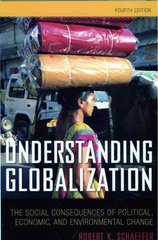Answered step by step
Verified Expert Solution
Question
1 Approved Answer
Firstly, analyze the way that Plato sets up his ideal state in the Republic in relation to the philosopher-kings. What makes the philosopher-kings, according to
- Firstly, analyze the way that Plato sets up his ideal state in the Republic in relation to the philosopher-kings. What makes the philosopher-kings, according to Plato, capable of running the state? What are the attributes of the philosopher-kings? Why did Plato take private property and family membership away from philosopher-kings? Secondly, explore why such a plan would or would not work in an actual state. Explore the pros and cons of putting philosophers in charge of the state.
- Explore Aristotle's idea that a state's fundamental aim should be attainment of the good life. What did Aristotle mean by this? Outline Aristotle's view of the good life for the individual and the collective. What role does the principle of the mean play in attainment of the good life for the individual and for the city? Do you agree that a state's primary aim should be the good life? Why or why not?
- Compare and contrast Aristotle's and Plato's political thinking. What commonalities and differences do you find between the two? In what areas do you see clearly that Plato influenced Aristotle? In what ways are Aristotle's and Plato's vision of the ideal state similar and different? Who do you agree with and why?
- Closely analyze the allegory of the cave in Plato's What was Plato trying to do with this allegory? Break down the allegory into the various levels of awareness and knowledge that each type of person can have in and outside of the cave. What was Plato saying about the nature of knowledge and humans with this allegory? How is his ideal state a reflection of his understanding of knowledge? Do you agree with Plato in his assessment of knowledge and the human condition? Why or why not?
- Both Plato and Aristotle were critical of democracy. Firstly, outline the reasons that both philosophers give for the downsides of democracy and why a democratic society fails to be just or optimal. Secondly, analyze American democracy in light of the critiques offered by Plato and Aristotle. Do you ultimately agree with Plato and Aristotle about the weaknesses and problems with democracy in light of modern American political life? Why or why not?
- Outline Thomas Hobbes' views on the optimal society for humans. What was his take on human nature? Do you agree with that take? Do you think it's missing something? Although some view Hobbes as somewhat pessimistic in terms of his view of human nature, is he right? Using some historical or modern examples, explore whether Hobbes is right in his estimation of human nature.
Step by Step Solution
There are 3 Steps involved in it
Step: 1

Get Instant Access to Expert-Tailored Solutions
See step-by-step solutions with expert insights and AI powered tools for academic success
Step: 2

Step: 3

Ace Your Homework with AI
Get the answers you need in no time with our AI-driven, step-by-step assistance
Get Started


